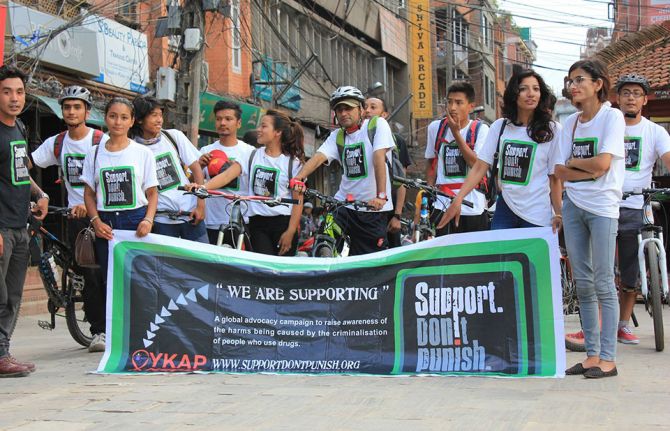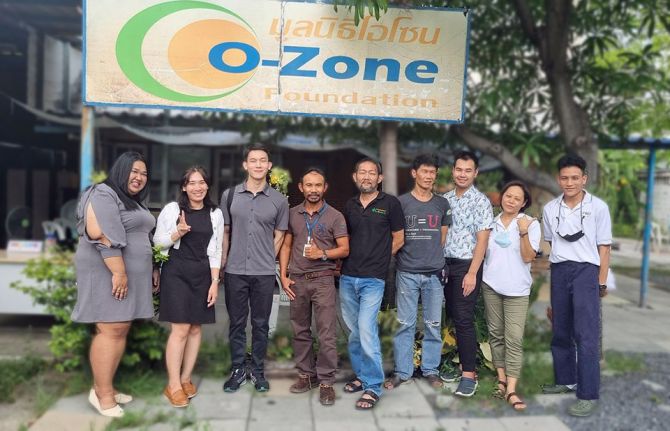

As part of its continuing work to demonstrate the benefits of actively scaling up quality programmes that are based on human rights and public health needs, UNAIDS released an advocacy brief; Harm Reduction Works. The brief gives examples from around the world on the importance of investing in HIV prevention, treatment, care and support programmes for people who use drugs; the need to engage people who use drugs in programme development; and the importance of implementing strong and effective harm reduction programmes.
Feature Story
Harm reduction works
18 March 2014
18 March 2014 18 March 2014Injecting drug use continues to drive the HIV epidemic in many countries around the world. According to the United Nations Office on Drugs and Crime (UNODC) in 2013 it was estimated that between 11 million and 22 million people inject drugs globally and that 1.6 million (1.2 million––3.9 million) were living with HIV.
In the 2011 United Nations General Assembly Political Declaration on HIV and AIDS, Member States committed to reduce transmission of HIV among people who inject drugs by 50% by 2015. However criminalization, stigma and discrimination remain widespread and continue to prevent people who use drugs from accessing essential HIV services.
Addressing participants at the High-Level Segment of the 57th UN Commission on Narcotic Drugs in Vienna UNAIDS Executive Director, Michel Sidibé emphasised the urgent need to provide effective services. “It is unacceptable that we are failing people who inject drugs,” said Mr Sidibé. “We have all the data to demonstrate that, in combination with antiretroviral therapy, essential services—including needle and syringe programmes and opioid substitution therapy—reduce HIV transmission, decrease mortality, and improve quality of life.”
Although people who inject drugs account for only 0.2–0.5% of the world’s population, they make up approximately 5–10% of all people living with HIV. However globally, less than 1% of people who use drugs have access to HIV treatment.
Participants at the roundtable discussion on demand reduction, which was chaired by Francisco de Asis Babin Vich, Head of the National Plan on Drugs at the Spanish Ministry of Health included representatives from UN Member States from some of the most affected countries. During the discussions Mr Sidibé made a strong call for harm reduction services to be implemented in all countries, particularly where HIV epidemics driven by injecting drug use exist. He cited excellent progress in China, where harm reduction is being scaled up in many parts of the country.
There was consensus among participants that demand reduction strategies should be based on scientific data and health. International drug treaties underscore that health is essential and drug control through repression of production and trafficking is not sufficient. All stakeholders including civil society should be included and engaged in demand reduction policies and programmes according to participants at the roundtable.
As part of its continuing work to demonstrate the benefits of actively scaling up quality programmes that are based on human rights and public health needs, UNAIDS released an advocacy brief; Harm reduction works. The brief gives examples from around the world on the importance of investing in HIV prevention, treatment, care and support programmes for people who use drugs; the need to engage people who use drugs in programme development; and the importance of implementing strong and effective harm reduction programmes.
Related
 Club Eney: a safe place for those left behind
Club Eney: a safe place for those left behind

21 October 2024


